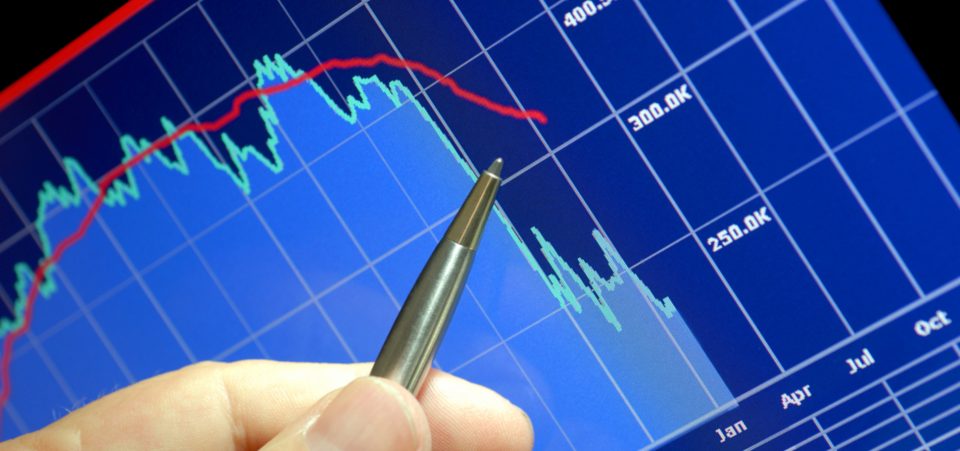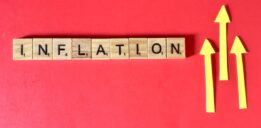The Volatility in November Was Just a Warning of a Stock Market Crash in 2019
Despite Wall Street’s performance in 2018, the market sent plenty of signals to warn investors that trouble lurked beneath the record highs. That’s why we can expect a major stock market crash in 2019.
As you digest your Thanksgiving turkey and ponder over the Black Friday deals you may have scored (or missed) consider this as we prepare to close 2018.
All the major stock indices are down for the year after achieving all-time highs. And what makes it all the more troubling is that the volatility and corrections occurred despite substantial corporate tax cuts.
All the signals are pointing to a sharp reversal of the stock market’s trend. In 2018, especially in the second half, it has clearly stopped growing. Or, more precisely, it has experienced frequent interruptions of its breakout phases.
2018 Saw Some Record Stock Market Highs, But…
Certainly, 2018 could have turned out to be one of the best or most bullish years ever in the history of Wall Street.
Yet, while there was no major stock market crash—arguably, there’s still time for one—there were at least three or four corrections, depending on your understanding of what makes for a “correction.”
The first correction occurred at the start of February, the second in the middle of March, and the third in October.
But November has been the scariest month. After questioning what the midterm elections would produce, the markets have entered a phase of tremendous uncertainty.
The overall sensation is that investors of all kinds have decided to question all of their trades and financial decisions in 2018.
That includes Bitcoin investors, who sent the fabled cryptocurrency back to the same price it was a year ago.
Simply Put, There Have Been Too Many Corrections
In 2019, we’re in for one big correction of the kind better known as a stock market crash.
At the time of writing, the big tech stocks have dropped some five percent, including investor darlings such as Apple Inc. (NASDAQ:AAPL) and Amazon.com, Inc. (NASDAQ:AMZN).
These factors include:
A higher dollar—pushed by the certainty of higher interest rates in 2019—and lower oil prices have put the competitiveness of U.S. companies in jeopardy.
A higher dollar makes U.S. exporters less competitive, especially given Trump’s tariffs and the related retaliatory measures. Lower oil may be good for consumers, but it puts the U.S. oil sector in trouble because it needs high oil prices to stay competitive.
Apple investors fear “iPhone” sales will drop as the company has become a bit too reliant on iPhone sales.
Fool Me Once, Shame on You. Fool Me Twice, Shame on Goldman Sachs
When Apple drops, the Nasdaq suffers. But what may really send the markets in a bad mood for the next few months is Goldman Sachs Group Inc (NYSE:GS).
The famous, or infamous, bank—one of those that had a starring role in the 2008 financial crisis and the sub-prime mortgage debacle—lost some 24.5% of its value (year-to-date) after being accused of being involved in a $4.5-billion fraud/embezzlement scheme revolving around Malaysia’s “1MDB fund” (1Malaysia Development Berhad).
Some Goldman Sachs bankers have been charged with taking $4.5 billion from 1MDB as well as paying bribes to officials in order to maintain lucrative contracts linked to it. Earlier this month, the U.S. Department of Justice targeted Malaysian financier Jho Low (now a fugitive) and two other Goldman bankers.
It’s not clear if both are guilty; only one has pleaded guilty, agreeing to return $43.7 million. Details of the scandal emerged after rumors circulated about a meeting between former Goldman Sachs CEO Lloyd Blankfein and the aforementioned Jho Low.
Predictably, investors have reacted by selling Goldman Sachs shares.
Malaysia’s Finance Minister has demanded a full refund of the missing sum, which has affected Goldman Sachs stock, pushing it to its biggest drop since 2011.
Should the scandal go on longer, its implications could send shockwaves through the markets and trigger a major stock market crash or even a financial crisis.
The scandal has already invited the kind of legal attention that ends up costing billions. A major Middle Eastern fund has sued Goldman Sachs already. (Source: “A Middle Eastern investment giant is suing Goldman Sachs over the ‘massive international conspiracy’ of the 1MDB scandal,” Business Insider, November 22, 2018.)
Delicate Economy and Fragile Markets
The economy is delicate. And in 2019, investors will be juggling various risks amid significant global tensions that threaten trade and growth.
Should Goldman Sachs’ troubles intensify, they could spread like a virus on Wall Street, triggering a massive loss of confidence and a major stock market crash.
Therefore, if investors’ main fears could be limited to the effects that the Federal Reserve’s interest rate hikes have on stocks, expectations of a brief correction might be warranted.
But the interest rates are a mere distraction from the growing tide of detrimental factors that have emerged.
The general sense of these “factors” is that the global economy has entered a slowdown. And the higher interest rates in the U.S. are merely the trigger, or the match lighting a pyre of issues.
Nevertheless, before examining some of the factors, the coming deceleration of economic growth will finally terminate any residual confidence in the economy.
This would be unlike 2017 and 2018, when a prevailing optimism managed to override any bad news. For example, although the benefits of the tax cuts were minimal at best or downright non-existent for most people, the stock market did not react too badly.
Blind Optimism Giving Way to Realism
In 2019, the blind optimism that allowed stocks to rise while the real economy suffered or stagnated will come to a sudden end.
And that will reflect on corporate performance while investors will pay more attention to earnings, rather than ephemeral promises of earnings.
This will reflect badly on their prices.
In 2019, we can expect the mix of two unfavorable factors. The first, and better-known one, is the higher interest rates. The second is an economic slowdown. It is an especially unfortunate combination.
It will not so much create volatility as it will apply a leverage effect, multiplying the bearish sentiment in the equity markets, further magnified by the brewing troubles in the eurozone.
Uncertainty Will Rule the Markets in 2019
The overriding factor that could set off the next major stock market crash might be summed up as uncertainty in the international political framework.
Trump’s tariffs have unleashed a trade war that has raised the risk premium.
The markets largely ignored the signals in the summer of 2018.
In 2019, the signals will demand attention, generating further negative moves in the prices of financial assets, and on investor confidence and decisions.
This day was always going to come, of course.
After 10 years of recovery, another market correction was expected. But unlike the post-WW2 period until the end of the Cold War, market corrections did not have as important an effect on the real economy.
Now, the speculation of the markets echoes into the overall economy, affecting the fate of millions of people who have no clue what a stock might be.
This, of course, only magnifies the effect. And that might be the single biggest warning. What has started as a correction will soon become a full-blown stock market crash.






